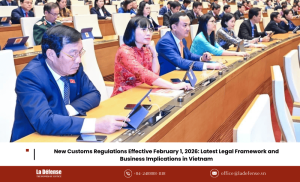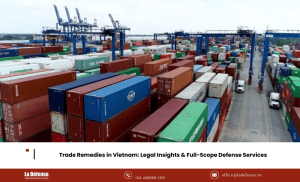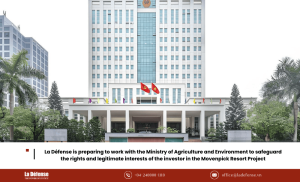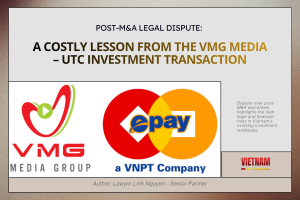Unlock Business Opportunities in Vietnam
Vietnam has emerged as one of the most dynamic markets in Southeast Asia, offering tremendous opportunities for franchising. With a growing middle class, increasing consumer spending, and favorable government policies, franchising in Vietnam is a lucrative pathway for both local and international investors.
At La Défense, we provide comprehensive legal support and strategic advice to help businesses establish and expand their franchise operations in Vietnam. Our team of experts ensures compliance with local regulations while maximizing your success in this vibrant market.
Why Choose Vietnam for Franchising?
Vietnam’s franchising sector has grown rapidly in recent years, driven by:
- Economic Growth: Consistent GDP growth and a stable business environment.
- Consumer Trends: A young, tech-savvy population eager for new experiences and brands.
- Regulatory Support: Clear laws governing franchising activities, fostering a conducive business climate.
- Strategic Location: Vietnam serves as a gateway to other ASEAN markets.
Key Legal Framework for Franchising in Vietnam
Franchising in Vietnam is governed by:
- Commercial Law 2005: Establishes the foundational rules for franchising activities.
- Decree 35/2006/ND-CP (amended by Decree 08/2018/ND-CP): Regulates franchise registration and operations.
- Intellectual Property Law: Protects trademarks, trade secrets, and other franchise-related assets.
Key requirements include:
- Franchisors must have operated their business model for at least one year.
- Franchisors must register their franchise with the Ministry of Industry and Trade (MOIT).
- Franchise agreements must be in writing and comply with Vietnamese law.
Our Franchise Services
At La Défense, we offer end-to-end solutions for franchising in Vietnam, including:
1. Market Entry Consultation
- Assessing market potential and identifying opportunities.
- Advising on the best franchise model (e.g., single-unit, multi-unit, or master franchise).
2. Franchise Agreement Drafting
- Preparing legally compliant agreements tailored to your business model.
- Protecting your intellectual property and ensuring enforceability.
3. Franchise Registration
- Assisting with franchise registration with MOIT.
- Preparing and submitting the required documentation.
4. Ongoing Compliance and Support
- Ensuring adherence to local regulations and updating agreements as needed.
- Providing legal representation in disputes or negotiations.
Industries Thriving in Vietnam’s Franchise Market
Franchising opportunities in Vietnam are especially strong in sectors such as:
- Food & Beverage: Fast food, cafes, and casual dining.
- Retail: Fashion, cosmetics, and convenience stores.
- Education: Language centers and skill development programs.
- Fitness & Wellness: Gyms, yoga studios, and health services.
Why Partner with La Défense?
- Local Expertise: Deep understanding of Vietnamese legal and business landscapes.
- Comprehensive Services: From entry strategy to dispute resolution.
- Tailored Solutions: Customized advice to meet your unique business needs.
- Proven Success: Trusted by franchisors and franchisees across various industries.
Start Your Franchise Journey Today
Whether you’re a franchisor looking to enter the Vietnamese market or a local business seeking franchise opportunities, La Défense is your trusted partner. Contact us to explore how we can help you navigate the complexities of franchising in Vietnam and achieve long-term success.








